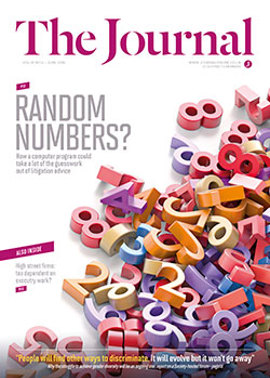Tenant farming: the first guidance

The appointment of Andrew Thin as Interim Adviser on Tenant Farming (“IATF”) was announced on 4 June 2015. This position is designed to be short-term until the appointment of a Tenant Farming Commissioner (“TFC”), under the Land Reform (Scotland) Act 2016 (“LRSA”).
In essence, the TFC will be an ombudsman, charged to create formal codes of practice and ensure adherence to them, imposing penalties for non-compliance.
The IATF has collaborated with NFU Scotland, Scottish Land & Estates, and the Scottish Tenant Farmers Association to produce guidance notes on four of the nine areas listed in s 27 LRSA as those on which the TFC may wish to produce a code, as well as on the future of limited partnerships (following the recommendation of the Agricultural Holdings Legislation Review Group). Acting alone, the IATF issued a self-help guide to rent reviews. All are available here.
The guidance: some basics
The existing guidance was not made under legislation: its use is voluntary. It will either have to be adopted by the TFC or made afresh. A desire is stated (in (2), (3), (4) and (6) below) that it will form the basis for any codes made under LRSA. For this reason, and in view of the involvement of industry bodies, those working in the sector should take account of the present guidance.
The approach and philosophy are constant. A collaborative approach is promoted. Each guidance note contains a step-by-step process, typically beginning with informal discussion. Mutual written notification of position is made at intervals, with opportunities for clarification. Timescales are given, as is guidance on extension of these. Where discussions fail, parties move to mediation. The advantages of mutual agreement over recourse to the Land Court are emphasised.
(1) Limited Partnerships – Planning for the Future (June 2015). The use of limited partnerships in agricultural leasing – with the landlord as limited partner and the tenant as general partner – enabled the parties, in an earlier legislative context, to choose the timing of the end of the lease. Many such partnerships have reached their term date and continue on a yearly basis.
For these circumstances, the guidance sets out a process, initiated by either partner, intended to lead to a new arrangement with greater security of tenure, such as extension of the partnership, a limited duration tenancy (“LDT”), or some other arrangement.
(2) Negotiating and Conducting Rent Reviews (August 2015). This aims to render the outcome of rent review more predictable, improving investment and the wider economy. It applies to tenancies with statute-regulated rents.
(3) Agreeing and Recording Tenant’s Improvements (October 2015). This applies to new tenant’s improvements, but use of the same principles in relation to tenant’s fixtures is urged also. Emphasis is placed on a shared responsibility to agree a tenant’s improvements prior to implementation, and on reasonable exercise of a landlord’s discretion to object to or refuse consent for a tenant’s improvement. This must be read together with sched 5 to the Agricultural Holdings (Scotland) Act 1991 and applies to improvements under sched 5, parts 1 and 2. Part 3 improvements are not included, but the tenant is urged to inform the landlord as a courtesy and to keep records.
(4) Negotiating Fulfilment of the Obligations of Landlords and Tenants (December 2015). This is aimed at resolving disputes and eliminating sub-optimal productivity. It applies to 1991 Act tenancies and LDTs, assuming a typical agricultural lease, but can be modified to fit other arrangements. A separate “Procedure for Fulfilling Obligations Retrospectively” is included.
(5) A Brief Self Help Guide to Rent Reviews, issued by the IATF (January 2016). Many parties pay an agent to act on their behalf in rent reviews. This guidance aims to enable more parties to 1991 Act tenancies to conduct their own rent reviews.
(6) The Process of Succession and Assignation (February 2016). This only applies to 1991 Act tenancies pre-LRSA. Parties should first seek independent legal advice, which is reinforced by mutual duties to remind the other of the same and “avoid misleading the other with respect to his or her legal rights”. Separate procedures are given for lifetime assignations and for succession on death.
Further guidance?
LRSA invites the TFC to make codes of conduct on the areas covered by (2), (3), (4) and (6) above, as well as: the conduct of agents of landlords and tenants; determining compensation at waygo; negotiating the terms of a modern LDT and a repairing tenancy; the management of sporting leases; and game management. The first of these is the subject of a discussion paper, signalling an intention to produce further guidance.
In this issue
- Brexit: a brand new world
- Plans reports: an evolving scene
- Law and IT: time for a new blend
- Care proceedings, the EU and foreign nationals
- Reading for pleasure
- Opinion: Simon Di Rollo
- Book reviews
- Profile
- President's column
- Coming down the line
- People on the move
- Litigation value and risk analysis
- Views of the gender gap
- Procurement: the twin track approach
- Wills: beware bank raids
- PSLs: no poor relations
- Sanctions: the holy grail
- DNA: how conclusive?
- Restoration riddle
- Tenant farming: the first guidance
- On a sticky wicket
- Looking forward, looking back: developments in anti-doping
- Scottish Solicitors' Discipline Tribunal
- Additional support needs and age criteria
- Paralegal pointers
- Where law and politics meet
- Marsh: why the axe?
- Law reform roundup
- From the Brussels office
- New framework: watch this space
- Lost horizons?
- Payment frauds: the fight goes on
- Ask Ash
- SYLA: the year in focus
- New wind in the sails






